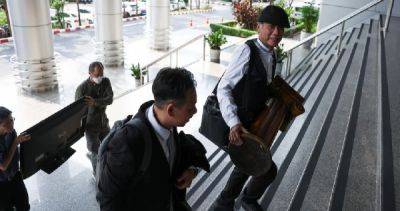Drought, heat and mismanagement make getting fresh water an increasingly tough task
As the world warms from human-caused climate change, fresh water for drinking, cooking and cleaning is becoming harder to get for many people.
That’s because the warming world is leading to erratic rainfall patterns, extreme heat and periods of drought — on top of decades of bad water management and extractive policies around the world. The United Nations estimates that around 2.2 billion people worldwide don’t have access to safely managed drinking water.
This World Water Day, Associated Press journalists from around the world interviewed some of the people struggling to get fresh water.
LIMA, PERU
Justina Flores, a 50-year-old grandmother, lives in a hilly Lima, Peru, suburb with no running water. With some of the water she gets from the government, she washes the clothes of her family of six by hand, and then reuses it to wash the dog or dumps it on the ground outside to keep the dust from coming up and into her house.
Peru’s government gives potable water to 1.5 million of its poorest residents, like Flores, living in the hills. Giant tankers filled with water lug up the steep roads, and the scarce resource often sparks conflicts between neighbors.
Flores tries hard to use as little water as possible for all her daily activities. She has an old washing machine, but washing by hand means she can save about 45 liters (12 gallons) of water per wash.
She and her family get about 3,000 liters (790 gallons) for all their washing, cooking and cleaning each week, while in San Isidro, the richest area of the capital, a family of equal size uses an average of 11,700 liters (3,090 gallons) per week coming from piped water, according to official data.
Flores has been a domestic worker in the homes of wealthier families since she was







